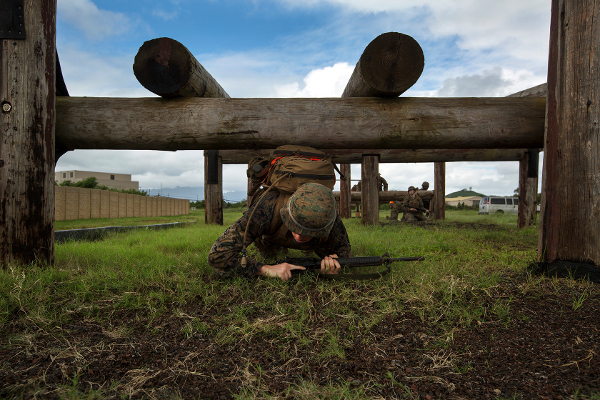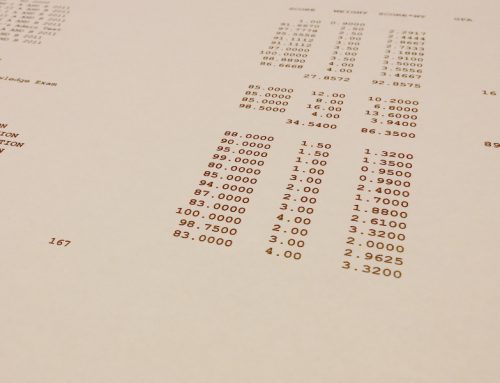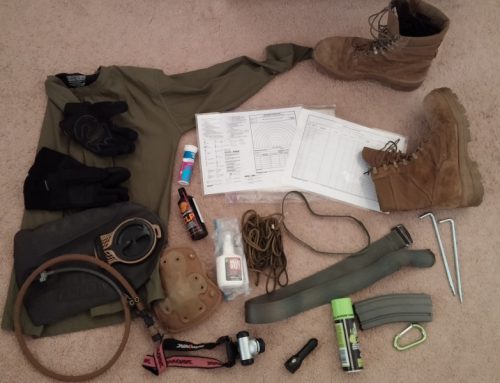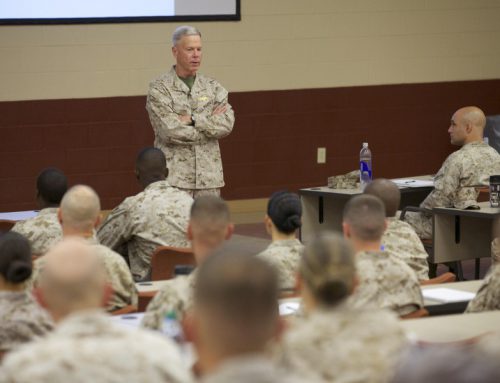The following information provides a quick overview of some events that will be encountered during Phase I and II of The Basic School.
Land Navigation
You’ll do a LOT of land navigation throughout The Basic School. A lot of it is just practice. The final event is in Training Area 16 which you are not allowed to enter for any reason before final land navigation. Looking at it on a map, it’s HUGE. You will work your way up to that level throughout the POI.
In its essence, land navigation hasn’t changed much since OCS. You’ll be doing basically the same thing and you need the same basic fundamentals. You will do both day and night courses at TBS. You need to make sure you understand the following concepts:
- 8 digit grid coordinates
- Use of a protractor
- Use of a lensatic compass
- Use of the GM angle to convert from a grid to a magnetic azimuth
- Use of a pace count
- Ability to identify terrain features on the map and associate them with features in the real world (terrain association)
At TBS, you need to apply all of the above if you want to succeed, or you will never find your box.
Overall, land navigation is not incredibly difficult. You have to drop lazy habits gained at OCS and actually apply the fundamentals. Take the time to learn the fundamentals so that it can be a relaxing experience for you, not a stressful one.
Night Land Navigation
Night land navigation is a lot like OCS, but in a much bigger area. Basically you walk back and forth between a stream and a road (about 800m apart) on an assigned azimuth and hope you hit the box you’re supposed to on the other side. There isn’t much advice to give on this, since all you can really do is take your time and follow directions. DEFINITELY wear eye protection when you do it though. You will have an eye poked out if you don’t.
Endurance Course
The E-Course isn’t as difficult as you may think. The course consists of an O-Course and 5 miles with various obstacles in the middle. You’re carrying an LBV with an assault pack full for various gear, kevlar, and your rifle. It’s definitely a lot of weight. That said, the times for passing are extremely generous. For males, 60 mins is max and 80 is passing. If you’re in shape, the E-Course won’t be a problem.
Double Obstacle Course
The Double-O is actually very difficult. It’s exactly what it sounds like: two O-Courses. It’s not too hard to pass, but it can be tough to score well. For males the times are 3 max and 5 pass. There’s really no good way to practice except to PT as usual, and work on your technique whenever you get the chance.
Squad Weapons FEX
Part of the subject matter you cover during Phase II is how to use various squad weapons, including the M249 SAW, M203 grenade launcher, M67 frag, and AT-4 rocket launcher. One day you go out to a range and shoot all of these weapons. Not very exciting, because you shoot a 9mm training round instead of an actual rocket. On the other hand, you are getting paid to shoot stuff, so there’s no reason to complain.
Phase II Exam I
Heads up, a LOT of people fail this exam, so study for it. Apparently it’s the hardest exam in the POI.
FEX I
Combat orders are a lot more detailed than those you did during OCS. Before beginning to write you will go through a METT-TC analysis (Mission Enemy Troops Time Terrain Civilians), which is an extremely detailed look at everything affectingthe mission. Based on that information, you begin writing the order. It doesn’t work like OCS where you basically copy and paste higher’s order into various parts of yours; you’re expected to actually exercise tactical thought.
The other thing that makes things a little more interesting is Fire Support. Every order you give will likely have a Fire Support Plan (FSP). It’s interesting learning material, but it is a lot to memorization. Basically, you’re FSP describes how you plan to use those indirect fire (IDF) assets available to you, including mortars and artillery. Learning the capabilities of these weapons, the kinds of rounds available for use, and when to employ them is what makes a lot of people trip up on Phase II Exam I. It’s all vital information so don’t neglect to learn it.






You got a lot of good information on here. Exciting to read, looking forward to TBS myself.
Thanks. In time I hope to have others post about various MOSs and schools as well.
So what happens the Marine fails Phase 11 E.xam 1?
Make up? Exam retake?
Immediate consequence?
How much of an impact is it on the final grade?
Mos Selection (noting that selection is first given to Marines at top percentage of class)
There is a retest, but you can’t score higher than minimum. For example, if you get a 100% on the test after you retake it and the pass score was 80%, you would get an 80% on the test.
Consequence: You are given a written counseling every time you fail.
Impact: Individual tests have minimal impact towards final grade.
MOS: Again, individual tests have minimal impact.
What happens if a Marine fails both final day and final night land nav?
Every time you fail there will be a remedial day (usually on the weekend).